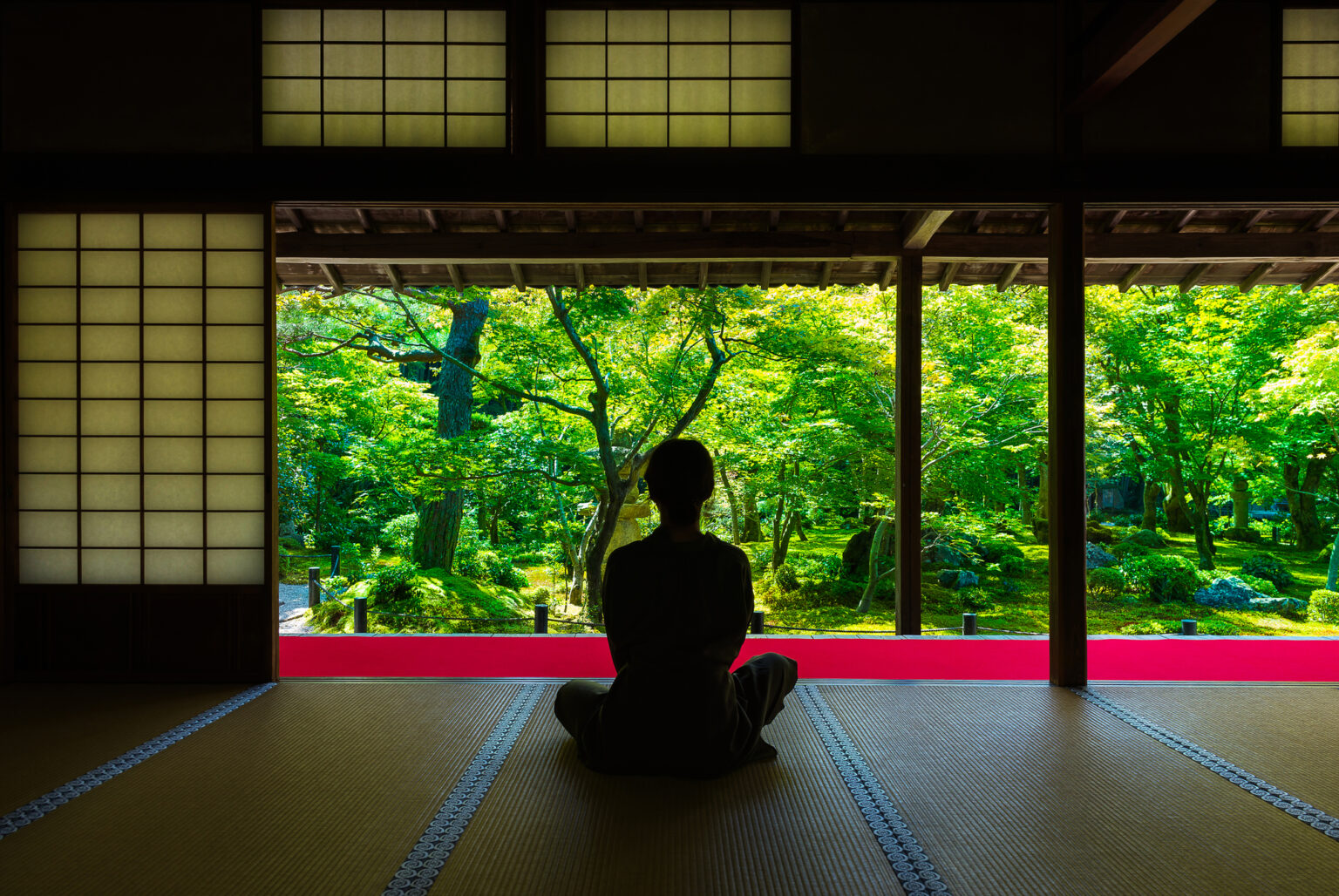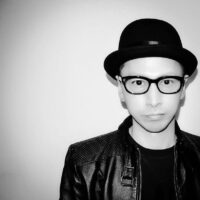This article is reprinted from an article published on April 14, 2021.
The prolonged and uncertain fight against the Covid-19. And our lifestyles are forced to change with it.
You may have lost a loved one to the Covid-19 all of a sudden, or you may have lost your job because of a job stoppage, or your business or business is in trouble.
Some people may be so discouraged by the gap between their dreams and ideals and reality that they can’t be positive.
In the midst of this pandemic, in which many people have been affected in one way or another, there is a growing interest among women in Zen.
Zazen and meditation are the most popular entrances to Zen, but Jyugyuzu, a classic classic of Zen, is now gaining attention as a bible that is indispensable for modern people.
Arguably the granddaddy of many self-help books, The Ten Bulls will shine a light on your anxiety-ridden, conflict-ridden mind and give you the impetus to find your “true self” and “true self.”
- “Jyugyuzu” (Ten Ox Herding Pictures), which guides you to your true self
- “ In Search of the Bull (Jingyu)”
- “Discovery of the Footprints (Kenseki) “
- “Perceiving the Bull(Kengyu)”
- “Catching the Bull (Tokugyu)”
- “Taming the Bull (Bokugyu)”
- “Riding the Bull Home (KigyuKika)”
- “The Bull Transcended (BogyuZonjin)”
- “Both Bull and Self Transcended (JingyuGubo)”
- “Reaching the Source (HenponKangen)”
- “Return to Society(NittenSuisyu).”
“Jyugyuzu” (Ten Ox Herding Pictures), which guides you to your true self
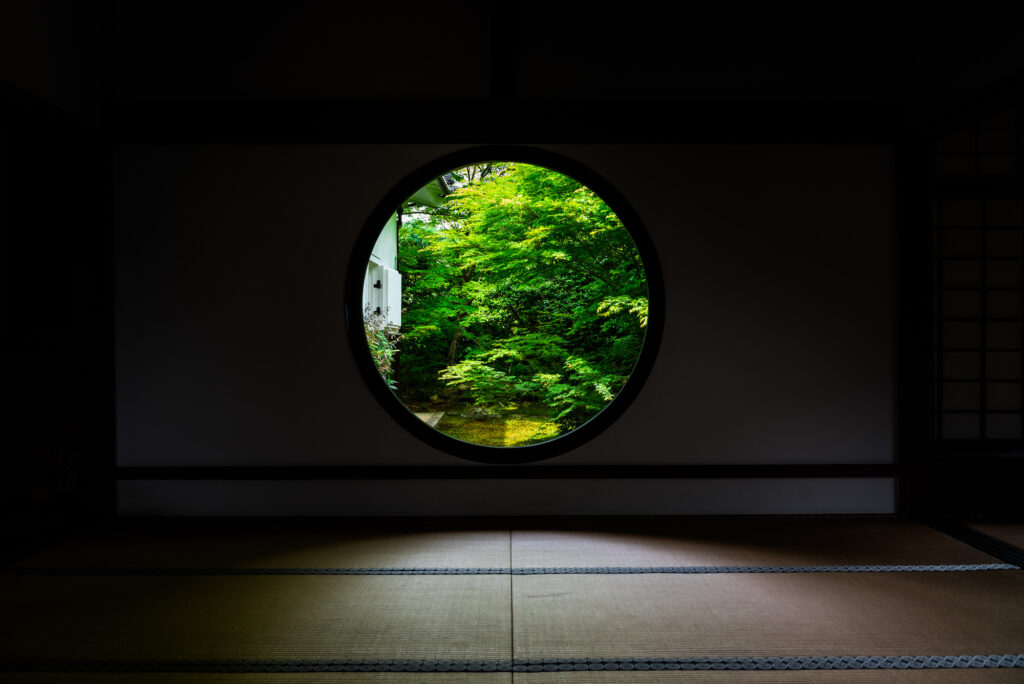
Jyugyuzu is a collection of 10 paintings and poems representing the 10 stages of a person’s enlightenment.
Each figure is accompanied by a preface, “jo,” and a Chinese poem, “ju.” The Zen master Kakuan Shion, a Zen priest of the Yogi school of the Rinzai sect in the 15 century, wrote “ju” and his disciple Jion wrote “jo.”
This painting depicts a Bull and a herder.
The Bull represents the “true self” and the herdsman the “true self seeker.”
I came across this Jyugyuzu when I was a teenager and was greatly influenced by it. I was a wrenching teenager, but I still remember being able to sort my mind a lot just by looking at these Jyugyuzu.
If you want to face yourself thoroughly and meet your “true self,” this Jyugyuzu may be for you.
I would like to introduce the Jyugyuzu with my commentary below.
As you look at each of these Jyugyuzu, observe where you are and how your heart and soul respond to the paintings and poetry. You’re sure to find a sentence that sticks with you.
“ In Search of the Bull (Jingyu)”
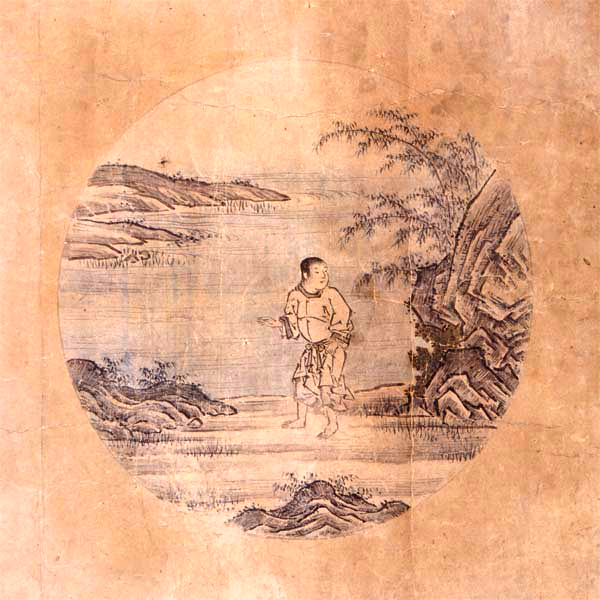
It depicts a herder going out in search of a bull he had been keeping because it escaped.
What the herdsman is looking for is his true self, his true self.
What does it mean to “find your true self”? It’s about finding a way to be happy for yourself.
People are supposed to have everything, but they turn their backs on what they have and don’t look directly at it. We count the number of misfortunes and forget to count the small number of happiness.
I struggle to get lost because I try to find things I don’t have. The truth is, I have lost nothing.
“Discovery of the Footprints (Kenseki) “
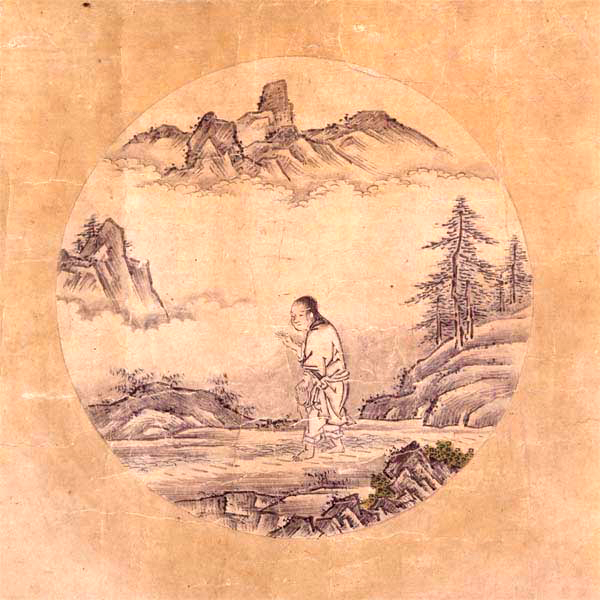
Exhausted from searching aimlessly across the mountains and fields, the herdsman was following the bull by reading sutras and learning from others. And finally they found their footprints.
This is the stage where you have found clues to your true self.
The act of reading sutras and begging for teachings from others is admirable. But it’s important to have an eye for it.
That’s how J. Marvin Spiegelman, author of Buddhism and Jungian Psychology, interprets it.
“All books, all knowledge, even all that I have come to realize in the past, if not in communion with my own nature, are the same as garbage”
Sutras and teachings from others do not have a place for your “true self.” Don’t mistake the cue and the goal.
“Perceiving the Bull(Kengyu)”
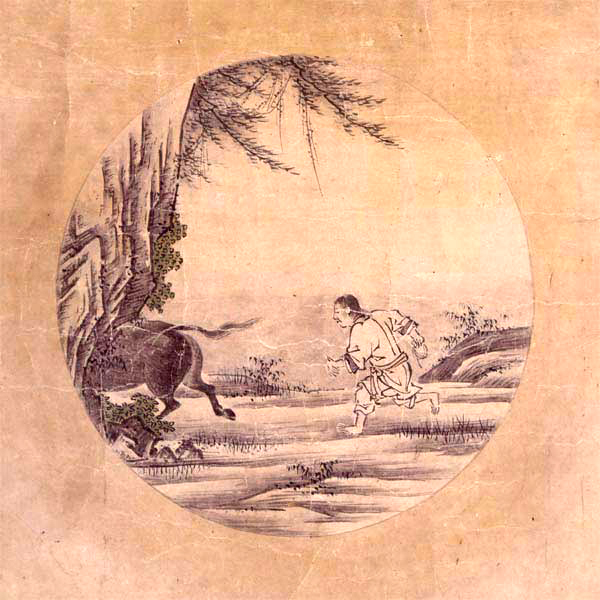
The herdsman finally found the bull, drawing on sutras and teachings from others. But the figure is hidden in the shadows, and only part of it is visible.
I was able to find the bull because he was also looking for himself. The history of my life up to that point, the subtleties of my mind, the pain and struggle and learning, all of which were necessary experiences to find a bull.
Like the “salt” contained in seawater and the “glue” contained in paint, you and the bull are originally one entity, not separate.
“Catching the Bull (Tokugyu)”
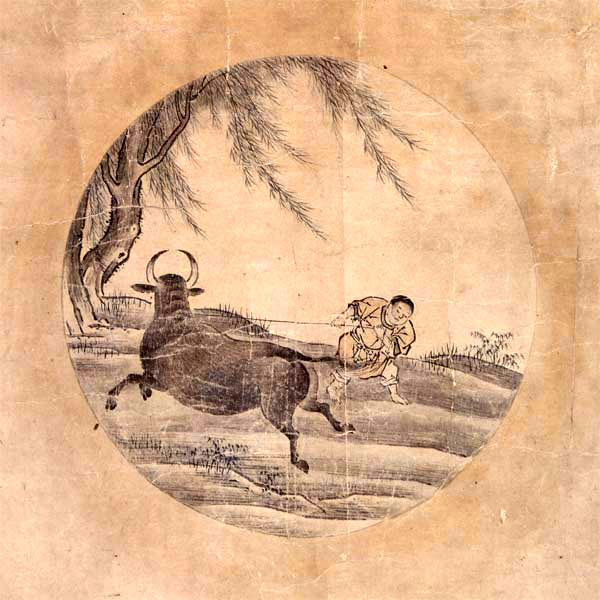
The herdsmen were able to catch water bull. You can rely on a single rope tied together.
After that, the bull did not give in to the will of the herdsmen, but wandered again, escaped, and disappeared.
People find their dreams and hopes, but in the process of making them truly their own, they run into confusion and trouble, and they have a lot to cheer about.
But that “agaki” is what it’s worth.
A bull, even if caught, will furiously seek the wild.
Even when I’m meditating, I’m constantly getting mixed thoughts. At such times, I rely on a single rope to refocus my consciousness and enter into my being.
“Taming the Bull (Bokugyu)”
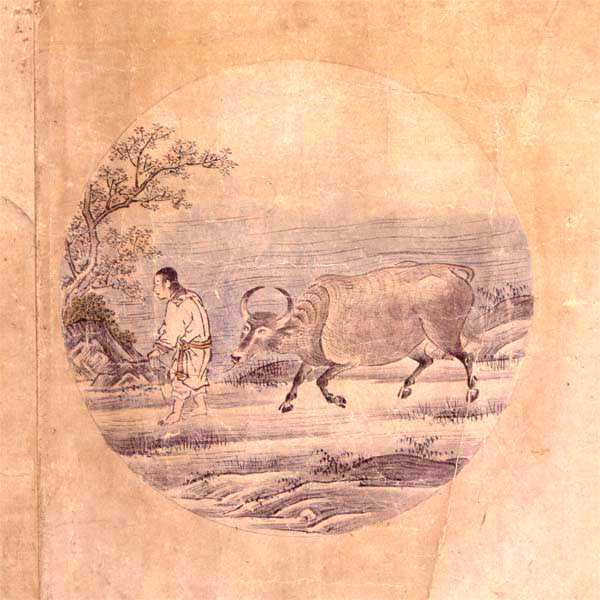
The herdsman was able to catch the bull again that had disappeared.
With reins and whips, he manages to steer the bull and rush home.
People can’t face their doubts, worries and weaknesses, and are afraid to face them. However, it is important to have a constant desire to meet your “true self.”
Now, without reins and whips, we can’t control the bull. Otherwise the bull will run away again and try to return to the wild.
With a little taming, the bull should become one with the herdsmen without the need for reins and whips.
“Riding the Bull Home (KigyuKika)”
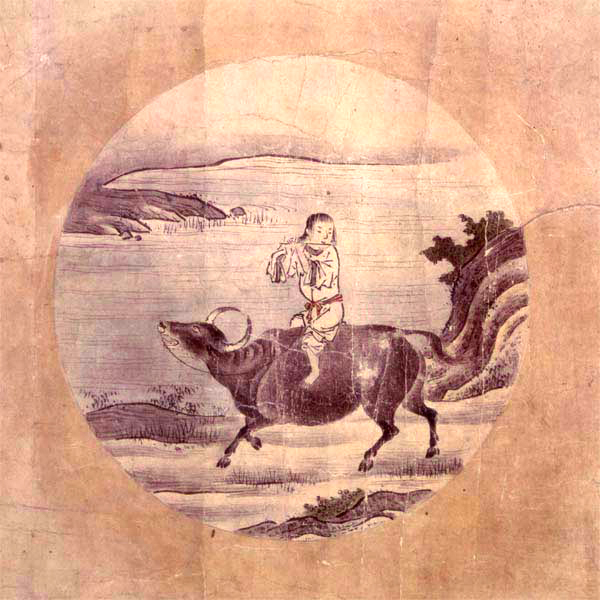
The bull finally gave in quietly to the herdsmen.
No more reins and whips are needed, and the shepherd is whistling on the back of a bull.
The herdsman and the bull became one. We were separated for a long time, but now we are one.
The “true self” and the self were originally one thing, just back together.
“The Bull Transcended (BogyuZonjin)”
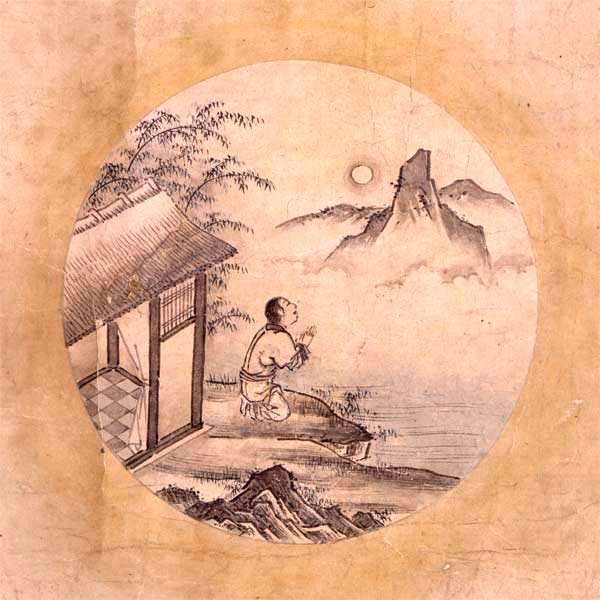
The herdsman came home. I sit in the eaves, looking at the mountains, looking at the moon and holding hands.
But there is no bull drawn here.
Just as the clouds clear and the moon shows its beautiful form, the bull realizes that it has been there from the beginning.
The bull that sought outside his own existence was one with himself, and within himself.
“Both Bull and Self Transcended (JingyuGubo)”
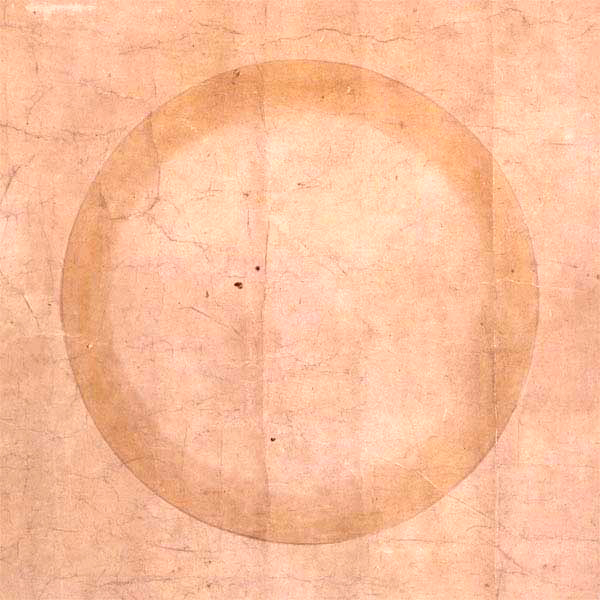
The figure no longer features a herder or bull, but a circle in the center.
This circle represents “Ku” (sky).
Everything in the world is “Soranashi (that things that seem to exist are all tentative and nonexistent).”
Spiegelman, mentioned earlier, says:
“The sun was in front of the light and the circle was in front of the man. What is the use of light when you have no eyes? What is the use of the whole when there are no parts?”
In search of the bull (the “true self”) and asking what my happiness was, I kept on going on a long journey. Then, once you reach “enlightenment,” you have to let go of even that “enlightenment,” or you will get lost about that “enlightenment.”
It says that if you meet your “true self,” don’t stay there, just run through it.
“Reaching the Source (HenponKangen)”
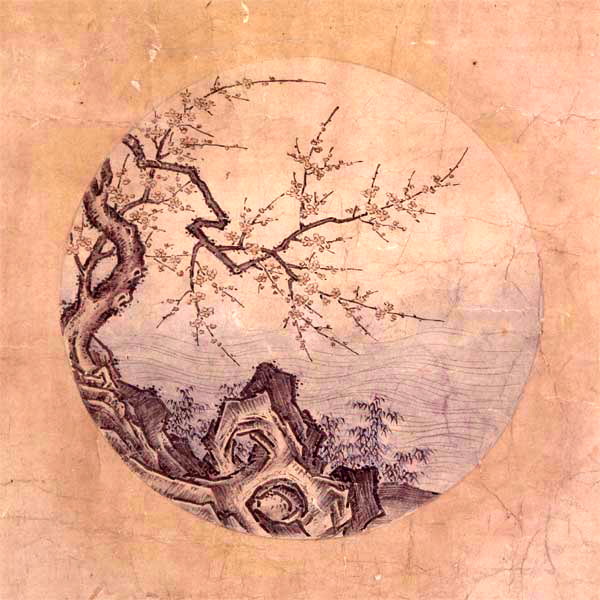
After it became “Ku,” what appeared was a “tree.”
At the end of his long journey he was able to find a bull, but there was no picture of him here, let alone a bull.
The very act of searching for your “true self” is precious, but the tree was still there in the garden before you set out on your journey.
If you look around with a pure heart, the world is beautiful enough as it is. The lake is spacious and the flowers are red. You don’t have to travel, you just sit in the garden and look at it and know it.
Trees teach us not what kind of “flowers” we can put into our lives, but the importance of taking root.
J Marvin Spiegelman puts it this way:
“Beyond the sky, beyond the sun, beyond the light, is the source. A source is a tree. The circle in the middle of the space meets the small circle in the hole of the tree”
*”Ku” means nothing
“Return to Society(NittenSuisyu).”
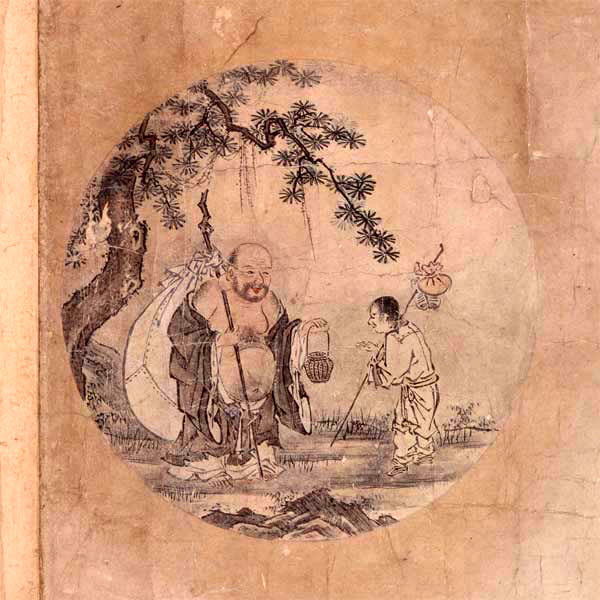
The painting is “Hotei-san.”
It goes without saying that he is one of the Seven Gods of Good Fortune.
This Hotei is a former herder.
After meeting his “true self” and realizing how happy he is, the herdsman goes to town, mingling with people and drinking without caring about his appearance. The face is full of smiles, and it heals and saves the people you meet.
Those who are enlightened, those who have gained something, can grow more by giving everything they have to others, without boasting about it or acting bossy.
Spiegelman says:
“Everything is Buddhist, everything is holy. That’s only when those things meet. Only when they meet and touch. If joy is not bestowed, what is it worth?”
If you can’t share, you don’t call it happiness.
*『十牛図』(相国寺蔵):周文筆, Public domain
How did you like it?
a state of mind unable to accept others. Feelings of hatred toward others by brandishing a sense of distant justice. infallibility in believing one is absolutely right and not doubting it.
These days, I feel that feelings of “I can’t forgive people” and “I can’t admit people” are swirling around social media.
Those of us who live our lives as if we are obligated to always exist in the framework of family, school and society from birth, and to find our worth and significance in relation to them. It’s similar to brainwashing.
As we struggle to find our “self” in our relationships with others, it is easy to lose sight of that “self” in the “mass” and get lost.
But even so, there are moments when I feel that my reflection in the eyes of others is the closest thing to my true self.
Others may be the things that torment you, but they are also the things that love you, comfort you, and hold your shoulders. To realize this, I think we must first reunite with the true self we have lost in “Mass.”
Using the Ten Bulls as a clue, ask your true self, and then meet. When you are reunited with your true self, you will surely feel more loving toward others than you do now. And most of all, you’ll love yourself.
May the Post-covid society be a wonderful society full of love.
References
“Buddhism and Jungian Psychology” by J. Marvin Spiegelman and Mokusen MUKAI Shunjusha

